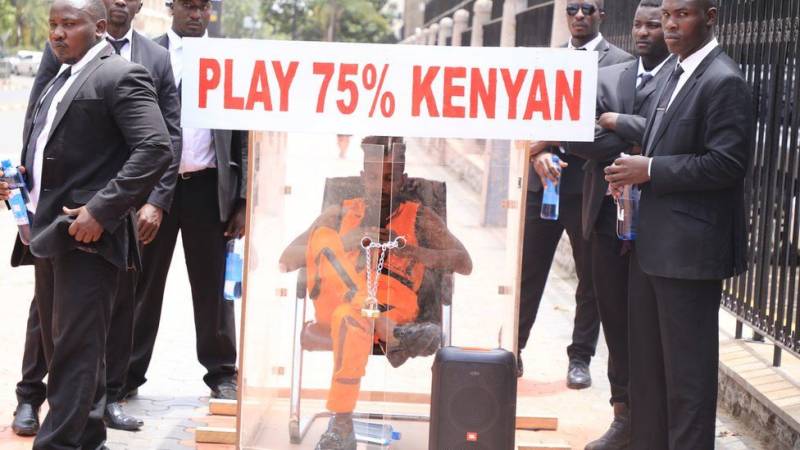Kenya's capital's famous pimped-up matatus, or minibus taxis, frequently travel through traffic to the sound of Nigerian Afrobeats music, Tanzania's Bongo Flava, or South Africa's Amapiano.
When you step out of the car, you can hear foreign music blaring from the street vendors' speakers.
Similarly, the most popular songs on the radio are rarely from Kenya.
While the global expansion of Africa's urban pop music scene has been a source of pride for the region, it has also sparked fears in Kenya that local performers are being crowded out.
Some in the industry believe that young Kenyan talent is not being given an opportunity to shine.
One radical option would be to increase the quota for Kenyan music on radio stations from the current 40% agreed upon in 2014 to 75% of the tunes aired.
The campaign is being driven by Eric Omondi, a popular local comedian who recently conducted an eye-catching demonstration outside parliament while contained in a glass box inscribed with the words "play 75 percent Kenyan."
Several MPs supported his initiative, including former comedian John Kiarie, who later asked parliament to "unlock" the potential of Kenya's creative economy sector by passing the bill.
"I'm advocating for more upcoming artists to be highlighted on radio and television. I want to make sure that our youth get exposure, create their businesses, and become self-sufficient "Omondi spoke to BBC Swahili.
However, the present ratio of 40% is already significant, and there are issues about why, given this exposure, Kenyan musicians continue to struggle.
box with the words "play 75% Kenyan" inscribed on it




